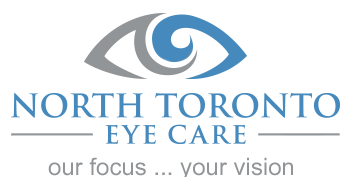Patient Information
Click Here For More Information
Office Hours
Monday – Thursday: 9 a.m.to 5 p.m.
Friday: 9 a.m to 3 p.m.
Patients should expect to spend approximately 2 hours at our office. This amount of time is what is typically needed to perform a complete comprehensive dilated exam and ophthalmic diagnostic testing. We have free Wifi and televisions in our patient lounge areas.
Accepted Forms of Payment
- Visa
- MasterCard
- Debit cards
How to Prepare for Your Visit
We want to make your visit to North Toronto Eye Care as smooth and helpful to you as possible. Please keep in mind the following suggestions are made with your health and satisfaction as top priority.
Be sure you allow enough time for your visit, noting that a first visit to the office typically lasts about two hours from start to finish. Follow-up visits have a tendency to be shorter, but we still recommend blocking off about an hour to complete.
Please bring the following to your appointment:
- Your contact information, health information, and any health cards you may have
- Details of your medical history (please ensure these include names, dates, and details of any past injuries or surgeries)
- If you wear glasses, your most current prescription
- The medication you are taking – this can be in list form, or you can bring the physical medications to the office if you’re unsure about details
- A driver to your initial visit, and then to each annual visit – you will most likely receive drops to dilate your pupils. Please bring a friend or relative if you feel you will need help during your visit in any capacity, whether it be understanding your eye condition, asking the appropriate questions, or moving around the office.
What Can You Expect at An Eye Exam?
- You will speak with an Ophthalmic Assistant about your medical history and the reason for your visit.
- Your vision will be measured and eye pressure will be evaluated, so that essential data is collected prior to seeing the ophthalmologist.
- If needed, other preliminary testing will be done by an Ophthalmic Technician. These tests are designed to analyze all parts of your eyes and could include pupil assessment, retina photo, retina scan of the back of the eye and other detailed eye measurements.
- You may receive eye drops that will dilate your pupils depending on the condition you are being evaluated for.
- Your eye doctor will then examine your eyes, often utilizing various lights, a slit lamp, and a device on their head to see different parts of the eye.
- Finally, your eye doctor discusses what he or she found during the exam, suggest treatment options and answer any questions you have about your eyes.
